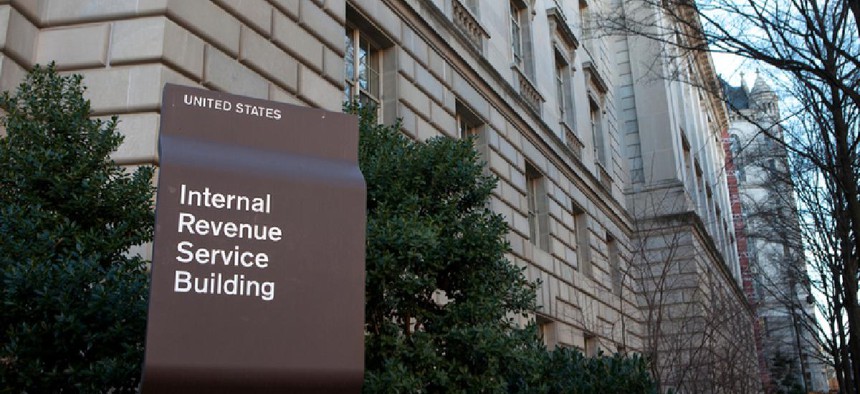How an IRS hiring blitz can help pave the way for IT modernization

The tax agency's chief procurement officer says she's on a mission to find top talent to work with industry while modernizing the agency's acquisition processes amid a ballooning tax gap.

IRS Chief Procurement Officer Shanna Webber described her office's effort to hire 80 additional staffers as a "recognition of the value and enabling capability" the procurement team brings to enabling agency-wide missions and modernization efforts.
Webber said the hiring blitz was "fantastic news" in an interview with Government Matters aired on Sunday, as well as an opportunity to streamline IRS acquisition processes and further cross-collaboration between the procurement team, the agency's IT staff and the private sector.
"There's not a lot that we can really do on our own without bringing our industry partners in to help us modernize our systems," she said. "This is an opportunity for us in the procurement space to also modernize procurement operations."
The fleet of new staffers will allow the IRS procurement office to increasingly work with industry while reforming procurement practices as agency officials work to address a ballooning tax gap, Webber suggested, with some estimates warning the U.S. may face $7 trillion in unpaid taxes over the next decade.
As the most senior acquisition official for the IRS, Webber said that she and her office were now focusing on outreach to help recruit top talent.
"I need people who are willing to come in and make a difference," she added. "People who feel curious, who feel bold, and who feel brave to make a positive difference."
Lawmakers and Treasury Department officials have long called for increased funding to support the IRS, which has seen its resources constrained in recent years. The agency has seen an overall 20% cut to its budget over the last decade.
"In part, the large and growing tax gap is the result of a sustained period of under-investment in the IRS," deputy assistant secretary for tax policy Mark Mazur said at a June house hearing, adding that the agency "too often relies on antiquated and siloed technology systems."
"Modernization funding would allow the IRS to address technology challenges, develop innovative machine learning techniques to better detect non-compliance, and support efforts to meet threats to the security of the tax system, like the 1.4 billion cyberattacks the IRS experiences annually," he added.
On Sunday, Webber said her office was sharing information with Treasury on its Pilot IRS initiative to help implement emerging technologies in acquisition practices, and has begun coaching other Treasury bureaus on how to incorporate emerging tech throughout the acquisition process.



